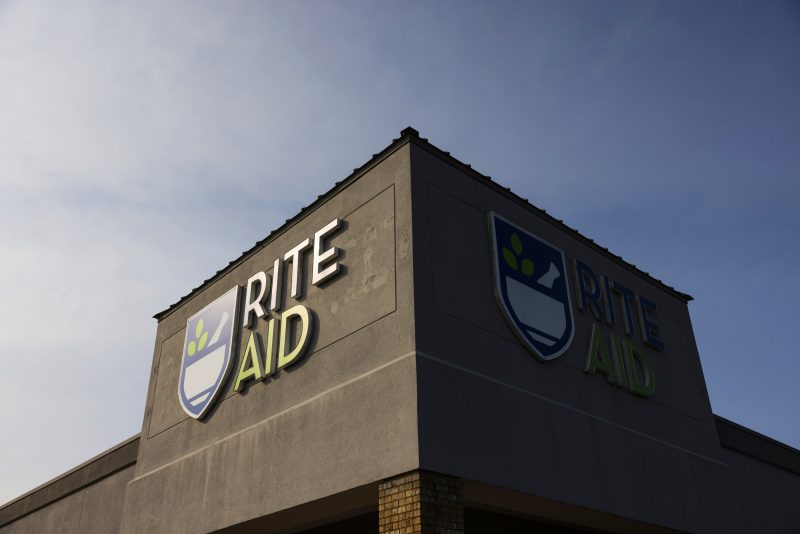
Rite Aid chain reportedly could sell up to 500 stores in bankruptcy plan
Rite Aid, the third-largest U.S. drugstore chain, is reportedly preparing to seek bankruptcy protection and could close 400 to 500 stores.
The Wall Street Journal reported Friday that Rite Aid was negotiating with creditors about a plan that would have it file for Chapter 11 bankruptcy protection and close about a quarter of its 2,100 locations. It would either sell the rest or let its creditors take them over.
The Journal, which previously reported that Rite Aid was considering a bankruptcy filing, said two groups of Rite Aid’s creditors are negotiating over how many stores would be sold, with one group preferring to sell more than it has proposed.
Rite Aid said in a statement that it is ‘continuing to work collaboratively and constructively with our financial stakeholders to identify the best path forward to reduce our debt and position the business for continued success.’
It said no decisions about its next steps have been made.
For years, Rite Aid, based in Philadelphia, has struggled compared to rivals CVS and Walgreens. It has posted weaker sales and struggled with its debt load, which stood at about $3.3 billion as of June 3, and it has said it isn’t bringing in enough cash to service those debts.
Making its financial position more precarious is a federal lawsuit accusing it of ignoring signs that it was filling prescriptions for opioid abusers from 2014 to 2019. Other large pharmacy chains have faced similar allegations. The Justice Department says Rite Aid illegally filled hundreds of thousands of prescriptions for opioids and other controlled substances.
While CVS and Walgreens each have about 9,000 stores, Rite Aid’s attempts at expansion have been much less successful. After it bought the Brooks/Eckerd chain in 2007, it had a little more than 5,000 stores. It has continued to close and sell locations as it has tried to get out of its financial hole.
In 2015, Rite Aid agreed to sell itself to Walgreens, with 865 stores going to another competitor, Fred’s. The Federal Trade Commission blocked the deal, and Rite Aid ultimately sold about 2,200 stores to Walgreens, while the Fred’s part of the sale collapsed.
Rite Aid then tried to sell itself to the Albertsons grocery chain, but it pulled out of the deal in the face of shareholder opposition.
In its latest quarterly filing, in June, Rite Aid said it expected to lose $650 million to $680 million in the current fiscal year and said it had $135 million in cash on hand.
